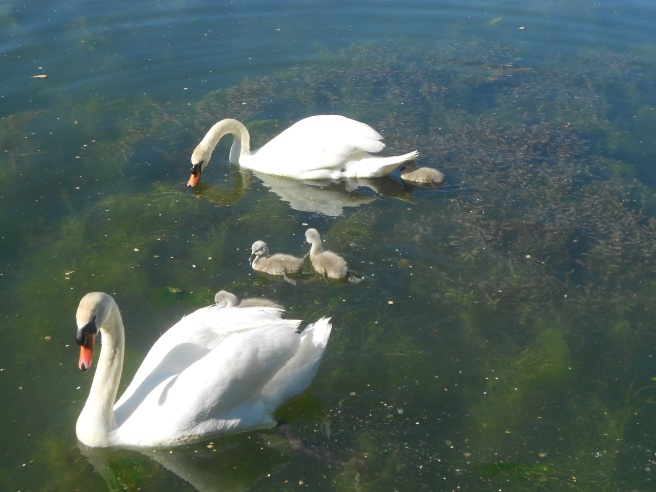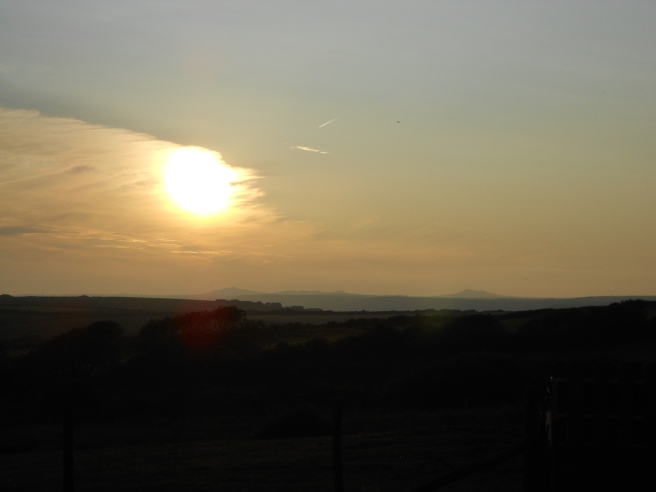The outbreak of coronavirus has coincided with our own little crisis, so that at first, I didn’t really appreciate the severity of the global situation.
My Crohn’s disease, which has behaved itself very well for at least six years now, has suddenly flared up. I caught a flu-like illness at Christmas time, and my poor stomach hasn’t been the same since. I got to the stage where I was exhausted and visiting the toilet several times a day … anyway, it wasn’t pretty. Thankfully it was just as the first coronavirus headlines were reaching the UK, so I was able to quickly access medical care.
The catch is that I’ve been put on steroids. These dampen my immune system and while that’s great for my Crohn’s (which is beginning to behave itself again) it’s not great when a global pandemic is occurring!
It has been really hard to know what to do. What I’ve been very aware of is that it was a flu-virus that triggered my current symptoms. I don’t want to give my immune system any more excuses to misbehave, especially with a brand new virus. I also don’t want to become one of those people overloading the NHS, by developing complications.
So we’ve applied social distancing measures to our family. We made the decision to keep the children off school yesterday. It seems foolish for me to be avoiding supermarkets, but letting the children go into a crowded, closed-in space for six hours a day, and risk bringing germs home. At first I thought we were overreacting, but a doctor friend has reassured me that we are being wise.
I’m very conscious that I was facing some deep questions just as coronavirus began making its way around the globe.
What if the treatment doesn’t work this time? What if my Crohn’s gets worse, and I have to live with debilitating pain and illness long-term? What if the treatment really doesn’t work? Will my life be cut short? Will I have to leave my family and my children?
I don’t want to sound dramatic, but these questions are very likely to be running through the mind of anyone facing a serious, chronic condition. I’m also aware that these may be the questions running through your mind right now, as you watch the spread of coronavirus, and the attempts of governments to slow and stem the tide of disease.
I think coronavirus is exposing us to things we prefer to suppress. Things I’ve had to face up to often through my life.
Medicine does not hold all the answers. When I was diagnosed with Crohn’s, I was surprised to discover that the doctors did not know what causes this disease (and many others). They know what the disease does, and can offer some very welcome treatments to heal our bodies, but cannot explain why a body’s immune system would turn upon itself.
And even the treatments themselves hold no guarantees. I may take the same steroids and medications as another woman my age, and she may respond and recover; I may not. Again, the doctors don’t have an explanation. Different people respond differently to different treatments, and it’s impossible to predict outcomes with certainty.
What this is all whispering to us is that our lives are not certain. We have far less control than we like to think. This is a truth we are able, most of the time, to keep at bay here in the west.
I know this because it’s how I lived before I got Crohn’s disease. I assumed that ill health and death were far off. I assumed that if I did get ill, there would be a scan, a pill, a treatment. And in the moments when such assumptions were shaken, I could silence the whisper of fear through social-media and home entertainment.
Teach us to number our days, that we may gain a heart of wisdom.
Psalm 90:12
I know it’s really scary, facing the unknown. It can feel like standing on the tip of a void. As I’ve reckoned with the possibility of my life holding illness, surgery, pain, cancer, and possibly an early death, I’ve sometimes been gripped with terror. What will happen to my children if my life is cut short? What will happen to me?
I’ve begun to realise, very vividly, that none of the things we trust in are strong enough in such a storm. Medicine can do much, but it cannot save your life indefinitely. The outlook is bleak – the mortality rate on this planet is fixed at 100%. You may get to live to eighty, ninety, but then you will die. And as Moses so eloquently states, even those years are weary, and full of trouble (Psalm 90:10).
My gentle challenge to you, during this fearful time, is to let yourself face those fears. Ask yourself those hard questions. Stand on the edge of the void, face the unknown.
What is your baseline trust? When all the things we usually trust in – social order, government, medicine – are being shaken, where is your hope? When a vague platitude of, “I’m sure it will all work out” no longer holds water, where do you turn?
It’s only as we face our fears that we really discover what we are hoping in, and where our trust is. Mine was in my health and youth, once. I quickly realised that a disease can easily take away all of that. Then for a while my trust was in medicine, but I learned that there are no guarantees, even for our amazing doctors.
It was painful, having my hopes, my expectations, taken away. My foundation was shaken. Yet as I discovered how weak medicine is, I found something stronger, something that is big enough to carry me through illness, pain, suffering, and yes, even death.
Or rather, Someone.
My hope used to be in treatment, in cure, in long life. Not any more. If God gives me those things, then I will thank him with all my heart, but he may not. That’s his call. And yes, I tremble as I write that. I don’t want to die. I don’t want to leave my family. I’m scared of coronavirus, just as I’m scared of the uncertainty of Crohn’s disease.
But here is what I’m hoping in.
God is bigger than Crohn’s, or coronavirus, or any other disease. He is more precious than youth, health, long life. His love is deeper, stronger, than any I could ever have known. It’s the kind of love we all long for.
As we look at our world now, pause and notice the fragility of our society. We appear so strong, with our health care, justice system and advanced technology. But coronavirus is revealing it all to be built on sand. A tiny particle, invisible to the human eye, is destroying our society.
But this is my hope … one day God has promised to renew this world. He has promised to sweep away corruption, disease, and even death. In fact, he has already removed the sting of death for those who love him. When I do die, whether of coronavirus, Crohn’s, or peacefully in my sleep as a ninety year old, I believe I will be truly coming alive. I will wake to peace, healing, and life.
While coronavirus is fearful, and evidence of the evil that underlies our world, it can also be an opportunity. It’s a chance for us all to pause, to sit in silence, just for a few minutes each day, and ask what we are truly trusting in. Youth and health may fail you. Medicine will fail you, if not now, then one day.
God will not. He can keep you safe in this life, and if he chooses for you to leave, he can give you an eternal life, un-threatened by disease, sorrow or death. Look for him.
You will find him if you seek him with all your heart.
Deuteronomy 4:29








 Firstly, at one level, there are no guarantees. I cannot control my husband. I have no guarantee that in ten years time he will have been faithful, or that we will still be married. So my deepest confidence must always be in my Saviour and God, who has promised absolute fidelity and never breaks a promise. If he is my joy and my hope, then even marital breakdown will not destroy me.
Firstly, at one level, there are no guarantees. I cannot control my husband. I have no guarantee that in ten years time he will have been faithful, or that we will still be married. So my deepest confidence must always be in my Saviour and God, who has promised absolute fidelity and never breaks a promise. If he is my joy and my hope, then even marital breakdown will not destroy me.

